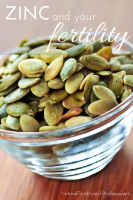
Prolactin is a hormone that is best known for allowing pregnant and breastfeeding women to produce milk. It also plays a role in many other functions throughout the body in both males and females.
Prolactin is a peptide hormone made by the pituitary gland and various other parts of the body. It is also referred to as the luteotropic hormone (luteotropin) and PRL. Prolactin is encoded by the PRL gene (R).
Primarily, prolactin is responsible for the stimulation of milk production in women (lactogenesis) (R).
When a woman is pregnant, prolactin levels increase by up to 10-20 times the normal amount. The levels return to normal within a few weeks after the mother stops breastfeeding.
Despite what its name suggests, prolactin does much more than only promote lactation. It is found in men as well and is influential in over 300 separate processes. It is recognized as a multipurpose hormone with one of the widest ranges of physiological actions of any hormone (R).
Prolactin is important for water/salt regulation, metabolism, reproductive behavior, the immune system, hormones, and the brain (R).
Main Functions of Prolactin
1) Prolactin Helps Create Breast Milk
Milk production occurs after birth by allowing prolactin levels to remain elevated while progesterone and estrogen undergo an abrupt drop as they are rapidly cleared in 3-4 days after birth from the body. Estradiol acts at the hypothalamic level to increase prolactin secretion (R).
In the process of milk production, prolactin, along with cortisol and insulin, act together to stimulate genes that encode milk proteins.
Together, they stimulate the uptake of various amino acids and glucose, and the synthesis of the milk proteins (casein), fats, sugar (lactose), spermidine, and phospholipids. Nonpregnant levels of prolactin are sufficient to maintain milk production (R1,R2,R3).
In breastfeeding mothers, prolactin is mainly secreted in response to stimulation of the nipples and breast by a suckling infant. The suckling by the baby blocks the secretion of hypothalamic dopamine (which normally inhibits prolactin). This results in a sharp rise in prolactin concentrations in the blood, followed by a prompt fall when feeding stops (R).
The suckling activates mechanoreceptors in and around the nipple and these signals are carried by nerve fibers through the spinal cord to the hypothalamus (R).
High prolactin can cause bone loss in order to export calcium to the breast milk (R, R, R, R, R).
Prolactin Affects Other Hormones
Elevated levels of prolactin decrease the levels of estrogen in women and testosterone in men. The effects of altered levels of prolactin on sex hormones are much more profound in women, substantially increasing or decreasing estrogen levels (R).
High prolactin concentrations inhibit secretion of GnRH, thereby decreasing luteinizing hormone and follicle-stimulating hormone (R).
Normal levels of prolactin in males enhance testosterone secretion and the creation of sperm (R).
Prolactin decreases hepcidin, which can increase blood iron levels (R).
Prolactin indirectly leads to the release Parathyroid hormone-related peptide (PTHrP) (via increasing serotonin synthesis in breasts), causing bone loss (R).
Normal Levels of Prolactin
The upper threshold of normal prolactin is about 25 µg/L for women and 20 µg/L for men. Prolactin levels below 3 µg/L in women and 5 µg/L in men are considered too low. Prolactin levels may be checked as part of a sex hormone workup since elevated prolactin secretion can suppress the secretion of other hormones like FSH, GnRH, and sex hormones (R).
Ideal levels of prolactin for men are probably between 5-10 µg/L.
Prolactin level blood tests are most accurate if conducted during the midmorning and not after stress, breast stimulation, physical examination, or other prolactin-increasing stimuli. In addition, elevated levels of prolactin should always be rechecked due to the variability of secretion and inaccurate test readings (R1,R2).
Prolactin levels rise starting one hour after a person falls asleep until peak amounts are reached between 5:00 and 7:00 AM. The lowest levels occur during the midmorning after waking (R).
Normal Prolactin Levels in the Blood:
High Levels of Prolactin
Higher levels of prolactin are found in pregnancy and breast feeding (R).
High levels of prolactin in a woman may cause:
Abnormal nipple discharge
Infertility/Difficulty getting pregnant
Low estrogen and progesterone levels (R)
Difficulty getting a period
Tiredness
Headaches
Nausea
Dizziness
Vision problems
High prolactin in males can cause (R):
Infertility
Low testosterone
Low sexual desire
Erectile dysfunction
A small benign tumor (microprolactinoma) is found in the pituitary of over one-third of women with high levels of prolactin (R).
Low Levels of Prolactin
Low prolactin is associated with ovary dysfunction in women.
In men low prolactin is associated with (R):
Low testosterone
Erectile dysfunction
Premature ejaculation
Low sperm count
Reduced sperm motility
Decreased function of seminal vesicles
In one study on low prolactin in men, normal sperm function was restored when prolactin levels were raised back to their correct values (R).
In mice without prolactin receptors, the hair cycle is disrupted such that shedding occurred earlier and there was a reduced duration of the telogen phase (R).
Prolactin levels are the highest during sleep, shortly after you wake up, and during times of physical or emotional stress.
In a study on female volunteers under hypnosis, prolactin surges resulted from rage or humiliating experiences, but not from the fantasy of nursing. Interestingly, compared to single males, fathers generally have higher prolactin concentrations (R).
The most consistent stimulus for prolactin secretion in males is stress (R).
Production of the prolactin-receptor in the brain increases with age, exposure to estrogens, elevation in prolactin levels, and by contact with babies (R).
Conditions with increased prolactin:
Pregnancy
Stress
Depression
Ovulation
Trauma
Surgery
Tumors of the pituitary gland (prolactinomas)
Hypothyroidism
Kidney disease
Liver disease
Seizures
Antipsychotics (via blocking DRD2 receptors) (R).
Some drugs and medications
Activities that increase prolactin:
Sex
Nipple stimulation (i.e. suckling)
Orgasms
Exercise (R) and Lactate (R)
Sauna (R)
Eating
Hormones that increase prolactin:
Estrogen (R)
Testosterone
TRH (R)
Progesterone - increases prolactin synthesis in the endometrium and decreases it in the myometrium and breast glandular tissue (R)
Vitamin D/Calcitriol (R)
Low DHEA (R)
Other:
Activating the serotonin receptors 5HT2A and 5HT2C
What Decreases Prolactin
Low prolactin can be caused by (R,R):
Damage to the pituitary gland
Sleep deprivation
Hypopituitarism
High Dopamine/D2 receptor activators
Hormones
 Order Book
Order Book that decrease prolactin:
Dopamine
DHEA (R)
Melatonin (R)
Supplements that decrease prolactin:
Mucuna (dopaminergic)
Ginseng
Uridine + Glutamine (R)
Dopamine
The primary Prolactin Inhibiting Factor (PIF) is the neurotransmitter dopamine. When prolactin is produced, the secretion of dopamine increases as well, which then restricts prolactin production.
Treatment with dopamine or compounds that activate dopamine receptors suppresses prolactin secretion (R).
Estrogen & Progesterone
Studies have shown that increased levels of estrogen correlate to higher amounts of prolactin secretion. This is confirmed by the fact that women have higher levels of prolactin in their blood during stages of pregnancy and their reproductive cycle when estrogen levels are higher too (R).
Estrogen enhances the growth of prolactin-producing cells, stimulates prolactin production directly, and suppresses the production of dopamine (R).
Progesterone increases and decreases prolactin, depending on the area of the body (R).
Prolactin: The Bad
Many of the metabolic and immune functions of prolactin can be observed in males, but for some of effects prolactin might not be high enough to be significant (R).
1) Prolactin is an Immune Stimulant
Prolactin affects a large number of cytokine receptors (R) and acts in a cytokine-like manner, increasing the production of many immune system cells (R).
Prolactin is mostly an immune stimulant. The hormone plays a role in autoimmune diseases.
Some types of lymphocytes secrete prolactin and this allows for production of more lymphocytes (R,R,R). Lymphocytic prolactin plays a role in skin graft rejection (R).
Immune responses (B cell, T cell) in organisms are enhanced by prolactin (R).
Prolactin increases cytokine secretion and inhibits the suppressor effect of regulatory T (Treg) cells in healthy individuals (R).
Treg cells help create tolerance and an anti-inflammatory environment.
Prolactin stimulates T effector cells (not good for autoimmune) and increases IFNy secretion, which encourages an inflammatory environment and Treg cell malfunction (R).
However, prolactin deficiency can cause immunodeficiency (R).
Interestingly, mice without the prolactin gene fail to show significant abnormalities in immune responses. As a result, prolactin has a modulatory role in several aspects of immune function but is not strictly required for these responses (R).
2) Prolactin Can Cause Autoimmune Disease
Excess prolactin is one of the important factors in the development and course of autoimmune diseases such as (R, R2):
Autoimmune thyroid disease
Alopecia (R)
Systemic lupus erythematosus (R)
Rheumatoid arthritis
Psoriasis (R)
Systemic sclerosis
Polymyalgia rheumatica
Sjogren's syndrome - excess prolactin is diagnosed in nearly one-third of these patients
Psoriatic arthritis - Drugs that lower prolactin help and improve joint and skin symptoms (R).
3) Prolactin Can Cause Weight Gain and Hunger
Prolactin receptors are found in fat tissue, liver, pancreas and the brain (R).
In fat tissue, prolactin is essential in fat cell production. It also increases the secretion of leptin and inhibits adiponectin (R).
Prolactin promotes appetite and contributes to the rapid increase in food intake during pregnancy and nursing (R).
In the pancreas, it increases insulin secretion (from glucose) and glucose sensitivity (R). This helps prevent diabetes during pregnancy, but can cause weight gain (R).
Prolactin also induces functional leptin resistance, which would contribute to increased food intake, potentially mediating the well-established leptin resistance of pregnancy (R).
Patients with high prolactin are prone to excessive weight gain, and normalization of prolactin levels using dopamine activators is associated with weight loss (R).
Interestingly, gene studies have revealed that a common variant adjacent to the prolactin gene is associated with obesity (R).
4-5) Prolactin Can Cause Anxiety and Depression
A byproduct of prolactin (vasoinhibins) causes depression and anxiety.
There is a correlation between prolactin and anxiety in men (R).
Prolactin levels in unipolar depressive patients are related to dissociative symptoms (R).
Prolactin may cause mood issues because of it regulates receptor potential thresholds, neuronal excitability and/or neurotransmission efficiency (R).
6) Prolactin May Worsen Migraines and Cause Pain
High prolactin may contribute to the pain in migraines, which can subside when given a drug to decrease prolactin (R).
Women given a drug to lower prolactin experienced improvement in their migraines (R).
7) Prolactin Inhibits Blood Vessel Growth
Prolactin increases vasoinhibins, which are known for their inhibiting effects on blood vessel growth, vasopermeability, and vasodilation (R).
8) Prolactin May Cause Cystic Fibrosis
Prolactin is one of the possible causes in cystic fibrosis (R).
9) Prolactin May Increase Cancer Risk
Prolactin may increase breast and prostate tumors (R).
Prolactin: The Good
1) Prolactin and Electrolyte Balance
Prolactin is responsible for fluid, sodium, chloride, and calcium transport across intestinal epithelial membranes (R).
Prolactin acts on the kidney to promote sodium, potassium, and water retention (R).
2) Prolactin Is an Important Hormone During Sex
Prolactin provides the body with sexual gratification after sexual acts. The hormone counteracts the effect of dopamine, which is responsible for sexual arousal. This is thought to cause the sexual refractory period (R).
The amount of prolactin can be an indicator of the amount of sexual satisfaction and relaxation. Unusually high amounts are suspected to be responsible for impotence and loss of libido (R).
Prolactin levels have also been found to rise with use of the drug MDMA (Ecstasy) (R).
3) Prolactin Increases Neurogenesis
In rats, prolactin can induce neurogenesis in the subventricular zone and the dentate gyrus (R).
Technical
The body produces 3 different forms of prolactin: little (14kDa), big (16kDa), and big-big (23kDa) prolactin (R).
Prolactin is secreted in a pulse-like fashion with a pulse frequency ranging from about 9-14 pulses per 24 hours.
Prolactin is found to be secreted from the uterus, placenta, immune cells, brain, breasts, prostate, skin, and fat tissue (R).
Prolactin receptors are present in the breasts, ovaries, pituitary glands, heart, lung, thymus, spleen, liver, pancreas, kidney, adrenal gland, uterus, skeletal muscle, skin and areas of the brain (R).
The 14 kDa form is most responsive to stimulation or suppression outside the pituitary gland (R).
The 16 kDa form has inhibitory effects on blood vessel and tumor growth (R).
The 23 kDa form creates new blood cells (R).
In humans, prolactin increased spermine and spermidine synthesis which are required for milk production (R).
Prolactin activates the Jak2/STAT5 pathway, which is responsible for milk production (R).
Watch Video


